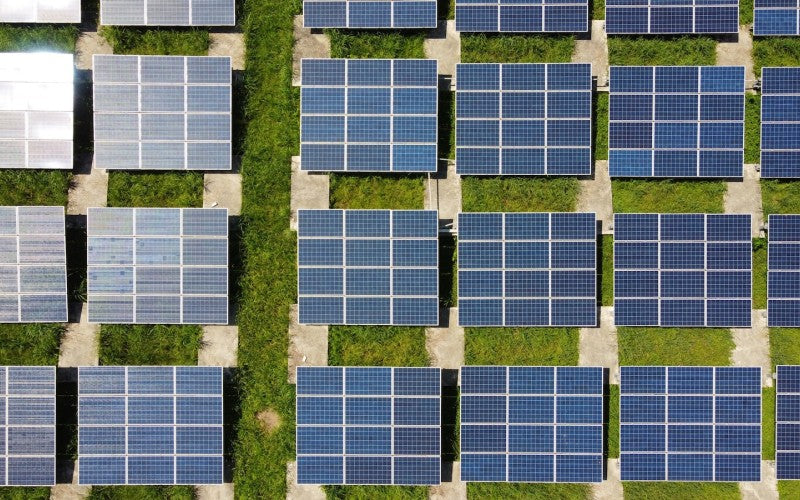
Welcome to our comprehensive guide on selecting the ideal solar inverter kit for your home. As solar energy continues to gain popularity, choosing the right solar inverter is crucial for maximizing energy production and reaping the benefits of clean, renewable power. In this blog post, we will provide you with expert advice and essential considerations to help you make an informed decision.
Understanding Solar Inverters
Solar inverters play a pivotal role in converting the direct current (DC) generated by solar panels into alternating current (AC) that powers your home. There are different types of solar inverters, including string inverters, microinverters, and power optimizers. Each type has its pros and cons, such as string inverters offering cost-effectiveness while microinverters provide individual panel optimization. Consider your specific needs and preferences when selecting the right type for your home.
Assessing Your Energy Needs
Before delving into solar inverters, it's crucial to understand your energy consumption and requirements. Evaluate your household's electricity usage patterns, taking into account appliances, lighting, and other electrical devices. This assessment will help determine the size of the solar system needed to meet your energy demands. Additionally, consider future energy needs, such as potential electric vehicle charging or home expansions, to ensure scalability.
Evaluating Inverter Features
Solar inverters come with various features that can impact their performance and functionality. Efficiency ratings and performance metrics indicate how effectively the inverter converts DC to AC power. Look for maximum power point tracking (MPPT) technology, which optimizes energy production by adjusting the inverter's operating point to match the solar panel array's output. Warranty and reliability are also crucial factors to consider, ensuring peace of mind and long-term performance. Monitoring and data logging capabilities enable you to track energy production and identify any issues promptly. If you plan to integrate battery storage in the future, ensure the inverter is compatible with such systems. Lastly, prioritize safety features and certifications to guarantee protection against electrical hazards.
Considering System Design and Installation
The design and installation of your solar system play a vital role in the overall efficiency and effectiveness of the solar inverter. Consider whether you will have a rooftop or ground-mounted system, as this affects the type of inverter you choose. Ensure the solar panels and inverter are compatible, and the inverter's capacity matches the solar panel array's size. Moreover, be aware of the electrical requirements and code compliance in your area. While some may opt for a do-it-yourself (DIY) installation, it's generally recommended to seek professional assistance to ensure a safe and optimal setup.
Researching Inverter Brands and Models
With a plethora of solar inverter brands and models available, it's essential to conduct thorough research. Look for reputable manufacturers known for their quality and reliability. Read customer reviews and testimonials to gain insights into real-world experiences with specific brands or models. Additionally, consult solar professionals or seek recommendations from friends or family who have already installed solar systems. Their expertise and firsthand knowledge can guide you toward reliable choices.
Setting a Budget
Setting a budget for your solar inverter kit is crucial. While cost is a factor, it's important to strike a balance between quality and affordability. Consider the long-term savings and return on investment (ROI) of your solar system. Although premium inverters may have a higher upfront cost, they often deliver greater efficiency and durability, resulting in greater savings over time.
Consulting with Solar Professionals
Don't hesitate to reach out to solar professionals for expert advice. They can guide you through the entire process, from system design to selecting the right solar inverter kit. Look for reputable solar installers with a track record of successful installations. They can provide valuable insights into the compatibility of different components, the optimal system size, and the most suitable inverter options for your home.
Making the Final Decision
Evaluate all the factors discussed above and narrow down your options. Consider your energy needs, the inverter features, your budget, and any professional recommendations you may have received. With a well-informed decision, you can confidently move forward and take the necessary steps to install your solar inverter kit.
Conclusion
Choosing the perfect solar inverter kit is a critical step toward harnessing the benefits of solar energy for your home. By understanding the different types of solar inverters, assessing your energy needs, evaluating key features, and considering system design, installation, and budget, you can make a well-informed decision. Remember to conduct thorough research, consult solar professionals, and take into account your specific requirements. With the right solar inverter kit, you'll be well on your way to enjoying clean, renewable energy and making a positive impact on the environment.



0 Kommentare